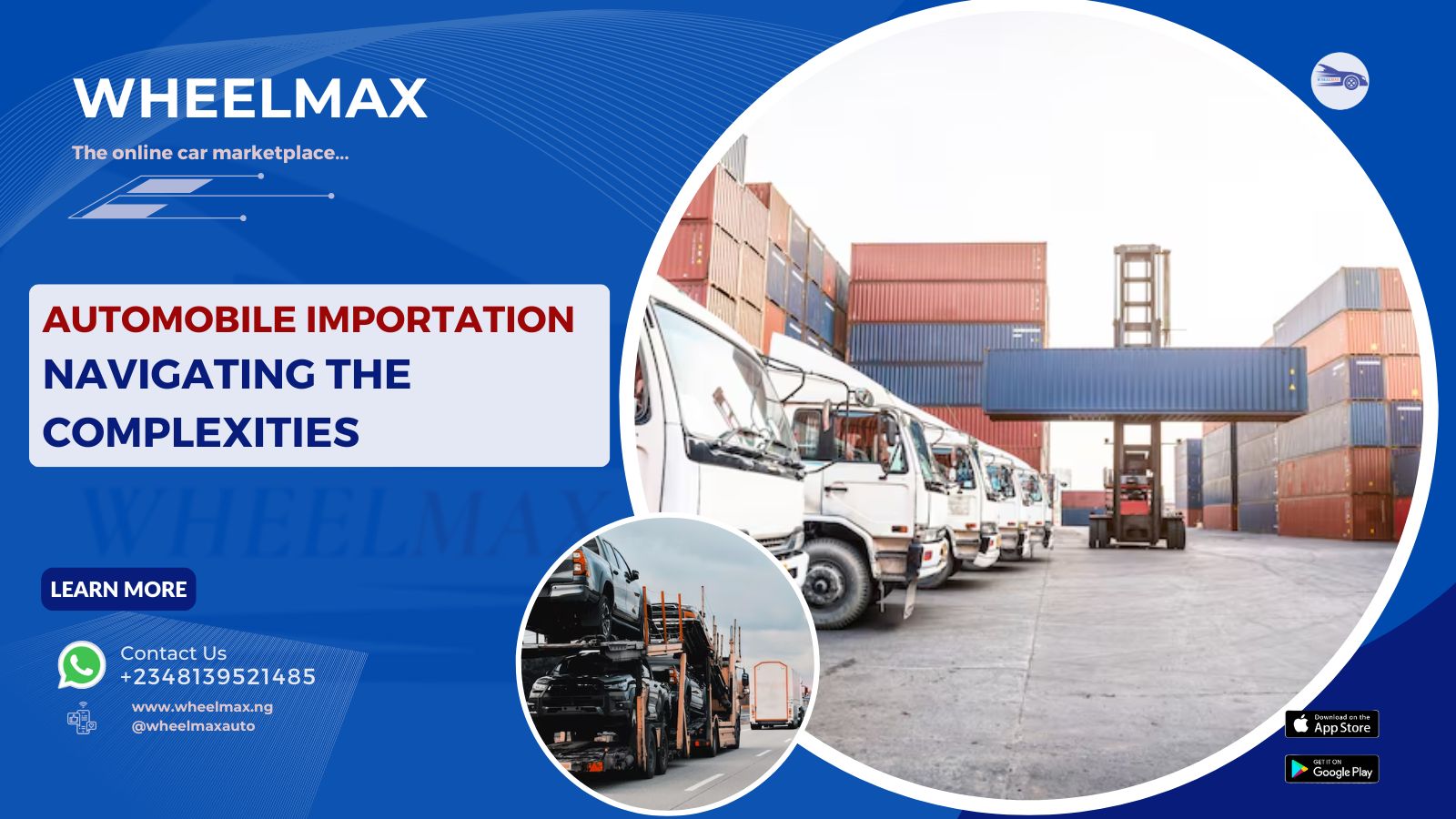Navigating the Complexities of Automotive Import Regulations: Your Roadmap to a Smooth Import Experience
Dreaming of importing that specific car model, the one that perfectly matches your taste or business needs, but isn't readily available locally? It’s an exciting prospect. However, the journey from a foreign port to your driveway in Nigeria is paved with a labyrinth of regulations, duties, and compliance checks. Ignoring these isn't just risky; it can turn your dream import into a costly nightmare of delays, fines, or even seizure.
Many aspiring importers dive in with enthusiasm, only to find themselves overwhelmed by unfamiliar acronyms, complex fee structures, and ever-evolving government policies. The truth is, successfully importing a vehicle requires more than just finding a seller overseas; it demands a clear understanding of the local legal landscape.
At WheelMax, we believe knowledge is power. We're here to shed light on this often-opaque process, helping you navigate the complexities with greater confidence.
1. Decoding Custom Duties: The Financial Cornerstone of Your Import
Understanding custom duties is paramount. These aren't arbitrary fees; they are government-levied taxes on imported goods, including vehicles. Miscalculating or attempting to circumvent these can lead to severe penalties.
- The Core Components: Duties are typically calculated based on:
- CIF Value: Cost (of the vehicle), Insurance, and Freight – the total value up to its arrival at a Nigerian port.
- HS Code (Harmonized System Code): A standardized international system to classify traded products. The correct HS code determines the applicable duty rate.
- Levies & Taxes: Beyond basic import duty, there can be VAT, ETLS (ECOWAS Trade Liberalization Scheme) levy, surcharges, and potentially others depending on the vehicle's specifics (e.g., age, engine capacity).
- The "Why": These duties contribute to national revenue and can also serve to protect local industries (though automotive assembly is still developing in Nigeria).
- The Unseen Cost of Ignorance: Under-declaring value or using incorrect HS codes to pay lower duties might seem tempting, but customs officials are trained to spot discrepancies. The resulting fines and delays can far outweigh any perceived initial savings. Being upfront and accurate is your best policy.
2. Mastering Import Procedures: The Step-by-Step Path to Legal Entry
The import process itself is a sequence of crucial steps, each requiring specific documentation and adherence to protocol. One misstep can stall the entire operation.
- Key Stages & Documentation:
- Pre-Arrival Assessment Report (PAAR): This is a mandatory document obtained through the Nigeria Customs Service. It provides an advisory valuation and classification of your intended import.
- Form M: A declaration of intent to import, processed through an Authorized Dealer Bank.
- Bill of Lading/Air Waybill: The transport document issued by the carrier.
- Shipping Documents: Commercial invoice, packing list, and certificates of origin/vehicle registration from the exporting country.
- Customs Clearance: Involves physical inspection, duty payment verification, and final release.
- The Bottleneck Potential: Delays often occur due to incomplete or inaccurate paperwork, discrepancies between declared and actual vehicle details, or failure to meet pre-arrival requirements. Each day your vehicle sits at the port due to such issues can incur demurrage charges.
- The Path to Smoothness: Meticulous preparation, ensuring all documents are consistent and accurate, and engaging with reputable clearing agents who understand the system intimately are vital. Think of it as building a solid foundation – get it right, and the rest is more likely to follow smoothly.
3. Compliance Regulations: Ensuring Your Vehicle is Road-Ready and Legal
Beyond duties and procedures, your imported vehicle must meet specific Nigerian compliance standards.
- Age Restrictions: Nigeria has regulations regarding the maximum age of imported used vehicles. Importing a vehicle older than the stipulated limit can lead to it being impounded or refused entry.
- Roadworthiness & Safety Standards: While not as stringent as in some Western countries, vehicles must generally be in good working order. Certain safety features might be implicitly expected.
- Emission Standards (Evolving): As environmental concerns grow globally, expect increasing attention to vehicle emission standards.
- The "Why": These regulations aim to prevent Nigeria from becoming a dumping ground for unroadworthy or environmentally harmful vehicles, ensuring a degree of safety and quality on our roads.
- Due Diligence is Key: Before even purchasing a vehicle abroad, verify its age and general condition against Nigerian import eligibility criteria. This preliminary check can save you immense trouble and financial loss.
Empower Yourself: Knowledge is Your Best Co-Pilot
Navigating the world of automotive import regulations can feel daunting, but it's not insurmountable. The secret lies in diligent research, meticulous preparation, and understanding the critical importance of each step.
While the complexities are real, being well-informed is your best defense against costly mistakes and your surest path to successfully bringing your desired vehicle into Nigeria. Stay updated on the latest circulars from Nigeria Customs Service and other relevant government agencies, as policies can evolve.
Consider consulting with experienced clearing agents or automotive consultants who specialize in Nigerian import regulations. Their expertise can be invaluable in ensuring a compliant and efficient import process.
At WheelMax, our commitment extends beyond just vehicles; we're dedicated to empowering our community with the knowledge to make informed decisions in the automotive world.
